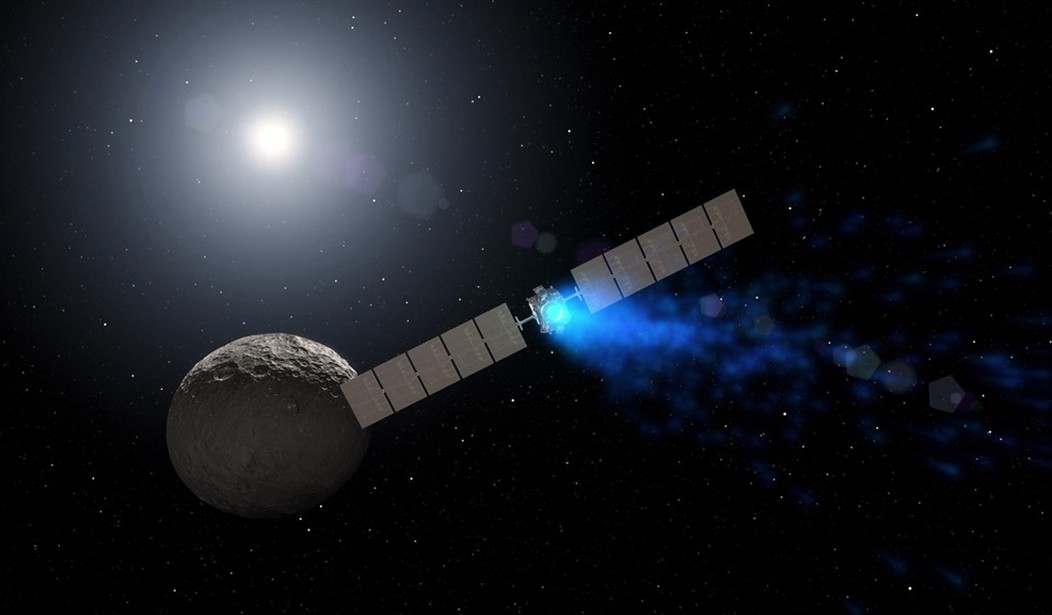Congress will return to work shortly, and they have a lot to do. They must pass the Fiscal Year 2017 budget, finalize the National Defense Authorization Act (NDAA), and think harder about national security – particularly in space. Why? Because space is ultimately where our national security lies. All the ground action depends on space-based direction, no precipitous moves, no accidental provocation, and no losing visibility from space. In a phrase, Congress – and the incoming President – must understand that we are dependent for peace on “mutually assured awareness” from space.
What does this mean, and why worry on it now? In short, the United States, Russia, China and Europe are all active in space, all engaged in high-stakes geopolitical chess on Earth, and all dependent on their “eyes in space” for next moves. This may sound simplistic, but is actually dangerous and complicated – more complicated than many realize.
Space-based satellite technology, including “national technical means,” are central to protecting our Homeland and allies, as well as forewarning adversaries that we know what they are doing, or planning. At the same time, our adversaries are given to caution when they see, in broad terms, that we are ready, armed and capable of our own self-defense. This is the kernel of deterrence, the wisdom in our strategic commitment to “peace through strength.”
But there is more to “mutually assured awareness” from space than preparing our next moves on Earth, or deterring our adversaries from precipitous aggression. There is a flip-side. Our adversaries are most likely not to become irrational or aggressive when they believe that we can see and respect their readiness and capability. In other words, global security is highest and the risk of catastrophic errors or misguided actions lowest, when all sides – in this case, the United States, Russia, China and Europe – all see that the other is ready, arms and capable of self-defense and defense of others.
Recommended
Of course, political leadership and will are also important. If a country appears materially ready, but is poorly or weakly led, the adversary will step up risk-taking while the taking is good. But that is a secondary issue. The primary issue is assuring all parties see and understand each other’s material ability to take action that makes aggression risky, unproductive and ultimately unwinnable. This is why “mutually assured awareness” from space is critical – it assures all parties that aggression must be limited, or intolerably adverse consequences are always possible.
Now, enter Congress: The pending NDAA finalization has a provision that limits American purchases of so-called RD-180 rocket engines from Russia. These engines are essential for launch of America’s Atlas V rockets, themselves essential for placing highly expensive and uniquely capable satellites in deeper orbits. This limit is unwise. Why? Because we want to see what Russia has on the ground, of course, and what China, North Korea, Iran and others may be planning.
But there is more: Russia also benefits from our “eyes in space,” because they allow America to know that Russia is ready and capable of responding to aggression, which assures Russia that we will not precipitously move against them. In short, like the old doctrine of “mutually assured destruction,” the notion of “mutually assured awareness” gives all parties a clear view of the other’s basic preparedness, which deters adventurism, overreaction and catastrophic accidents.
So, how does this affect Congress – and all of us? Congress should be wise and, at the end of a strangely acrimonious election cycle, non-political. Congress should assure that, as has been the case for the past 20 years, the symbiotic and mutually reinforcing policy of unlimited American buys of Russian RD-180 rocket engines for Atlas V launches of our “eyes in space,” continues.
Particularly in view of recent explosions of alternative rocket engines, preserving America’s national security – now depends on Congress making the right choice, and sustaining the long-standing symbiosis. Congress must preserve America’s visibility from space and recognize the value of “mutually assured awareness” by affirmatively unblocking limits they have placed on American purchases of RD-180 rocket engines from Russia. Global security, like it or not, depends on these kinds of interlocking and mutual security arrangements. With the political silly season now over, can Congress please return to keeping us safe, which is one of their real jobs?
























Join the conversation as a VIP Member